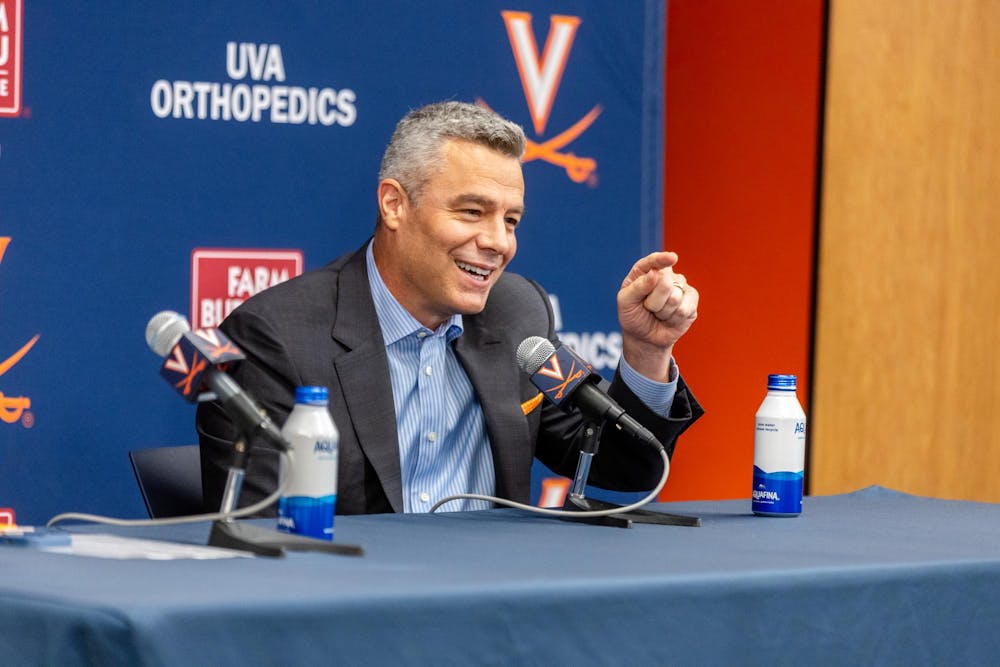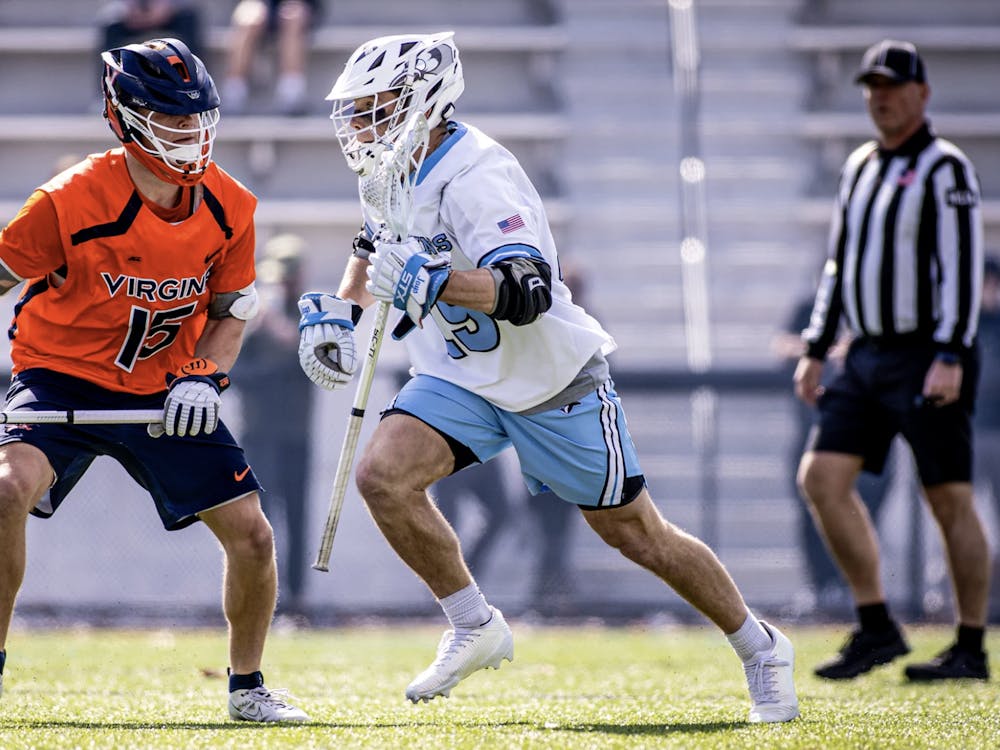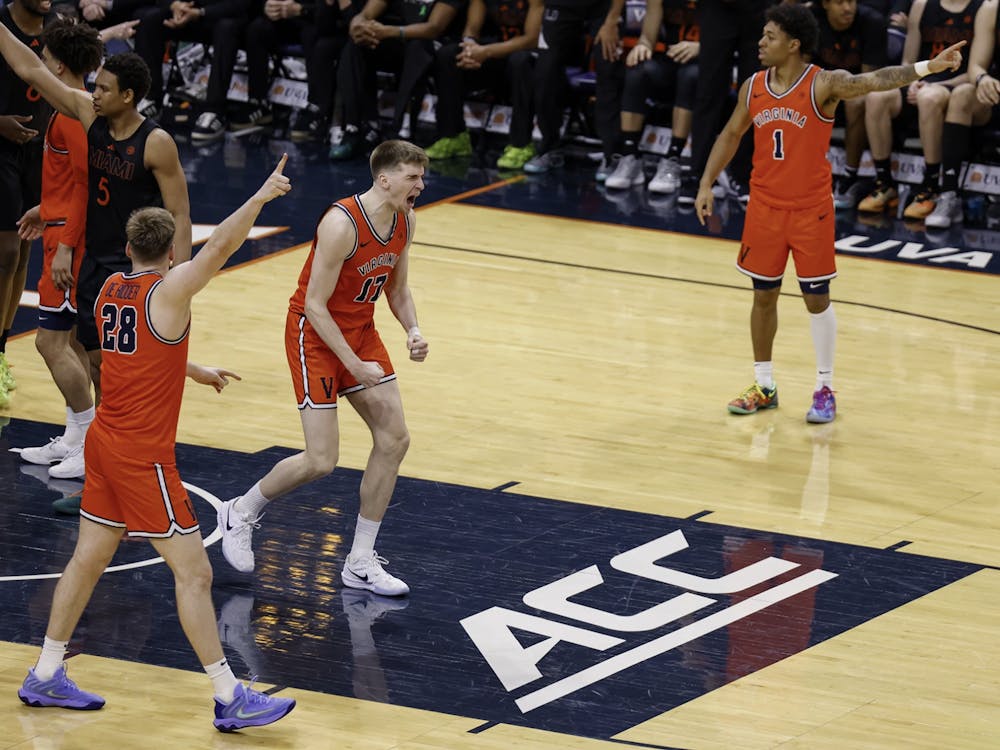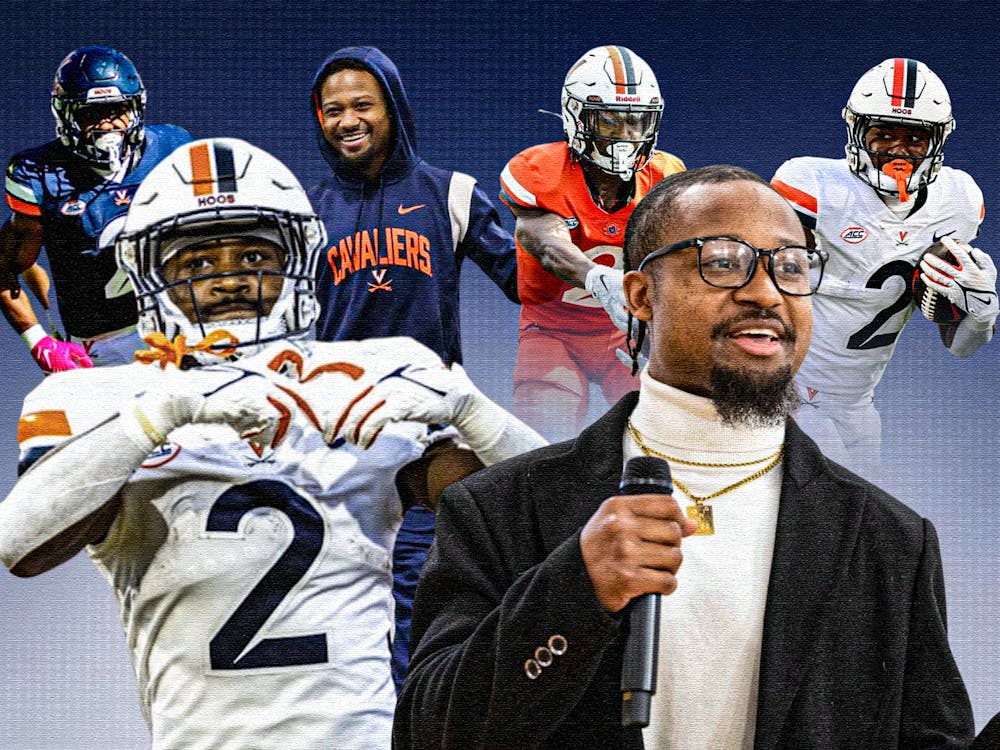Editor's Note: This interview has been edited for grammar, length and clarity.
Tony Bennett is enjoying retirement. As Virginia men’s basketball kicks off the 2025-26 campaign, the venerated coach, as has been his custom in the 13 months since his shock retirement, has stayed out of the spotlight.
But at the Dick’s Sporting Goods House of Sport grand reopening in Charlottesville Oct. 31, Bennett reflected on his new chapter in an interview with The Cavalier Daily, offering his thoughts on the landscape of college basketball and sharing what makes Virginia basketball special to him.
Jordan Zimm: What have you been up to since you stepped away from coaching?
Tony Bennett: Quite a bit of things. I still do some stuff for U.Va., a little bit of the fundraising and all that. I'm involved in doing a lot of speaking engagements and some mentoring. But really, it's been awesome to spend a lot more time with my parents, my children and just do things that I never had the chance to do while I was coaching.
JZ: Have you spent any time around this year's U.Va. team?
TB: I went in the spring. I saw them practice, and I was so impressed with the coaches and with the players and just how hard they were working. They looked very talented. Coach Odom and I have gotten together a couple of times — and some of the other coaches just randomly, whether it's in town or places. I was visiting my daughter in New York, and I missed the exhibition game. But everybody seems to be very excited, and they got a lot of promise, so it should be some excitement.
JZ: How is the contrast of styles between the style that you had and what Odom plans to do during his time?
TB: Each coach, each program has to figure out with the team you have, what gives you the best chance to win and be successful. And Coach Odom, obviously, has been so successful where he's been, and he's recruited a team that fits how he wants to play. We were a little more half-court oriented. But you just hope that you get the guys playing to the best of their abilities and the way you want them to play as a coach, so I'm excited to watch them.
And like I said, I know Coach Odom is a heck of a coach, and he's got a really good staff, so I'm sure they're implementing it now. It's just different because in this new era of college coaching, it's probably one year at a time. You've got guys that you bring in, and maybe some stay longer. So you have to obviously implement your stuff quickly.
JZ: You were talking about college basketball as a whole just now. What are your thoughts about the current state of college basketball with NIL and the transfer portal?
TB: I'm not a fan of it. I'm a fan of the game. I'm a fan of young men receiving some compensation. But I think it's so unmonitored and not regulated. And I think until it becomes more regulated, a level playing field and there's more control — I'm a big fan of young men obviously developing and having a chance to play professionally, but also, with that, enjoying what it means to be a student-athlete. To be at a school like U.Va. and get a degree from there, maybe that doesn't exist as much anymore. So I'm saddened by where the game has gone in terms of that. I think it'll never go back to what it was as an amateur sport with student-athletes.
I do feel like there is an absolute huge need for change and regulations, and maybe it has to follow more of a pro model with contracts and salary caps and all that. There's still a need for good people, good coaches, and all that. But it's taken a turn that I don't think many people are pleased with, and hopefully they'll fix it. And, you know, there will still be opportunities for student-athletes to make some money and do it. But also, can they get educations and things that matter to me?
JZ: What do you think was the most rewarding part of your time at U.Va., looking back now?
TB: When we got here, we were taking a program that had struggled for a while and just watching it turn and doing it with guys who really believed in what Virginia was about. They wanted to put it at the top of the map for basketball or become one of the top-tier programs.
Obviously, it's exciting to see the fans when we win all the conference championships — then the national championship. But then, even going through some of the really hard losses, having guys that you could go through that with. They stayed together. There's a time where maybe we had some guys transfer here and there, but everybody, pretty much, said we're gonna figure this out. We're gonna go through some of these hard times, and we're gonna come out on top, and those are the beautiful lessons.
JZ: What do you think makes U.Va. basketball so unique, and how do you hope that identity continues with Odom?
TB: I just want him to put his own stamp on the program. He'll do it in his way that he deems best, and he's a man of character and, like I said, a very high-quality coach. I hope they can bring joy to the fans and do it in a way that all these changes in college basketball, they still can find the right guys that value what U.Va. is about. But each coach has to put their own identity and what they want it to look like. And I hope he can do that, and I know he'll have all the support of the administration and the people that are pulling for him, and just develop good young men and try to coach to the best of his ability, and be successful.
JZ: Do you see yourself returning to coaching one day — maybe at the next level or at any level — or are you happy with what you're doing now in this new chapter?
TB: Right now, I'm very happy. I'm really thankful to be doing what I'm doing. I always go a year or two at a time, but right now, in the foreseeable future, I don't see a return. But I love watching, like I said, some of our guys that I coached that never got to play in the NBA, and reconnecting with a lot of the players and spending time. I'm really enjoying this phase and trying to impact in different ways, and maybe even help out the game with some changes, hopefully with some things that will help change it for the better.







